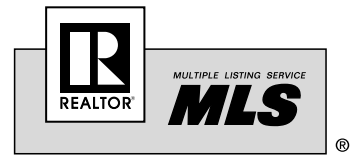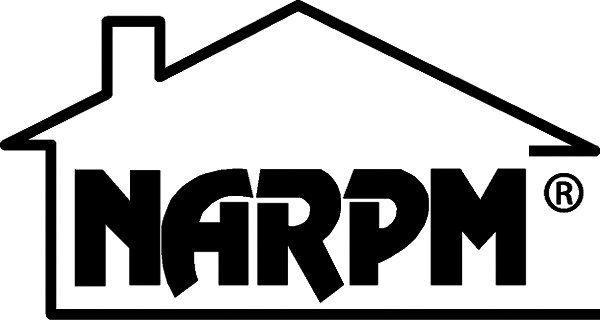13 Reasons to Hire a Property Manager in San Antonio

Are you a landlord who's tired of chasing down tenants for rent, dealing with maintenance issues, and navigating the maze of legal requirements? Well, fear not! Hiring a property manager might just be the solution to all your problems.
Picture this: You can finally sit back, relax, and let someone else handle the day-to-day tasks of rental property management. No more late-night emergency calls, no more stress-filled lease violations, and no more headaches when tax season rolls around.
With a property manager in San Antonio, you'll have an expert on your side who can help you attract high-quality tenants, handle maintenance and repairs efficiently, and stay in compliance with all the laws and regulations governing rental properties. Plus, you'll have someone who can act as a buffer between you and your tenants, maintaining positive relationships and helping to resolve conflicts.
Hiring a property manager is especially important for rental properties in San Antonio. Given the high prices and interest rates,
home sales fell by 24% in 2022. In response, rental rates increased by 7% due to high housing demand.
In such a rapidly changing housing market, you’ll be able to protect your investment better if you have an ally who has a finger on the pulse of the market.
Hiring a property manager in San Antonio can save you time, reduce stress, and increase your rental income despite the quickly changing market conditions. Let’s look at how a property manager can help to
look after your property and interests.

1. Efficient Rent Collection
A property manager can ensure timely rent collection, saving you the hassle of chasing down tenants for payment. They set clear expectations and offer multiple payment options for tenants to pay rent on time.
Properties managed by professionals have, on average, a
rent collection rate of 97%
or higher. Hiring a property manager can save you the headache of dealing with payment issues yourself.
2. Reduced Vacancy Rates
The average vacancy rate in San Antonio is 7.7%, but a property manager can reduce help to ensure your property is rarely vacant. They can help you find tenants faster and keep them longer by ensuring that your property is marketed effectively and is always in top condition. By utilizing their expertise in marketing, tenant screening, and property maintenance, they can attract and retain high-quality tenants, which in turn can lead to a lower vacancy rate.
3. Better Tenant Screening
Property managers are trained and have access to resources and tools to thoroughly screen potential tenants, including conducting background checks, verifying employment and income, and checking credit reports. This can help reduce the risk of renting to problematic tenants, who can cause damage to your property or fail to pay rent on time.
So if you want to avoid the headache of dealing with problematic tenants, consider partnering with a property manager for better screening.
4. Expert Maintenance
Property managers can help ensure your property is well-maintained by handling repairs, conducting inspections, and ensuring tenants are following the rules. Plus, they can save you time and money in the long run by catching maintenance issues early on.
According to a
2020 study by Buildium, properties that are professionally managed have a 46% lower eviction rate and 23% lower tenant turnover rate compared to self-managed properties. So, if you want to keep your property in tip-top shape and your tenants happy, a property manager might just be the way to go.

5. Legal Compliance
Property managers are familiar with all of the laws and regulations governing rental properties in San Antonio, ensuring that you are always in compliance. Staying up-to-date on legal requirements is one of the most important parts of their job.
By keeping track of changing laws and regulations, property managers can help ensure that your property will avoid any potential legal issues down the line. So, if you want to stay out of legal hot water, a good property manager can be worth their weight in gold!
6. Emergency Availability
A property manager can be a lifesaver when it comes to emergency availability. They are responsible for ensuring that all necessary repairs are made promptly and efficiently, which can be a huge relief for tenants in a crisis.
Although the law allows landlords
3-7 days for repairs, many tenants expect their property manager to respond to maintenance requests within 24 hours.
A skilled property manager can also be instrumental in developing emergency preparedness plans and ensuring that all necessary safety measures are in place. So, if you want to sleep soundly at night knowing that your property is in good hands, a property manager is definitely worth considering!
7. Better Tenant Relations
A property manager’s job is to be the mediator between the landlord and the tenants, and that includes maintaining a positive relationship with them. They can act as a buffer between you and your tenants, helping to resolve conflicts by being responsive to their needs. They can do so by addressing concerns in a timely manner, and ensuring the property is well-maintained. This can reduce stress and tension for both parties involved.
8. Investment Insights
A property manager can be a great asset in providing investment insights for your real estate portfolio. They have a wealth of knowledge and experience in the industry and can offer valuable advice on market trends, property values, and potential risks.
About
6% of property owners
hire managers primarily for investment advice. This is likely due in part to the fact that property managers can provide critical insights on things like rental rates, occupancy rates, and maintenance costs that can help investors make more informed decisions.
So if you're looking to make smart real estate investments, consider enlisting the help of a skilled property manager. After all, as they say, two heads are better than one!

9. Lease Enforcement
Lease enforcement is the bane of many a landlord's existence. But have no fear when you can hire a property manager for the rescue! A property manager can ensure that your lease agreements are properly enforced, reducing the risk of lease violations and eviction.
They can monitor their behavior, send reminders of violations, and take appropriate action when necessary. This way, they also reduce turnover (and turnover expenses) and vacancy rates, which can ultimately save landlords money.
10. Reduced Liability
By ensuring that your property is always in good condition and in compliance with legal requirements, a property manager can help reduce your liability as a landlord. They're like the safety net of the real estate world.
By handling things like tenant screenings, lease agreements, and maintenance requests, property managers can help prevent potential legal issues from arising. So if you want to minimize your legal risk and sleep better at night, consider hiring a property manager.
11. Streamlined Record-Keeping
A property manager is like a wizard when it comes to streamlined record-keeping! They can keep all the paperwork organized and in one place, saving you time and headaches. By hiring a property manager, you can rest assured that your rental property's financial records, maintenance history, and tenant information are all kept in one neat and tidy package.
So, if you want to avoid drowning in a sea of paperwork and stay on top of your property management game, consider enlisting the help of a skilled property manager.
12. Improved Marketing
Marketing is a natural part of a property manager’s job since it’s a given that they’ll take steps to ensure that your property is seen by as many potential tenants as possible. By utilizing a variety of advertising channels and targeting the right audience, they can help you attract the right tenants and keep your units occupied.
They can help your property stand out in a crowded market by staying up-to-date with the latest marketing trends and utilizing a combination of online and offline advertising methods.
13. Better ROI
If you're looking to boost your return on investment (ROI), a property manager might just be the person you need. They do this by helping you optimize your rental rates, reducing vacancies, and ensuring timely rent payments.
They can also take care of maintenance issues and keep your property in tip-top shape, which can lead to happier tenants and fewer turnover costs. So, a property manager can be a game-changer when it comes to improving your return on investment (ROI) in real estate.

How Much Does a Property Manager Cost in San Antonio
As we can see above, the success of real estate investment depends on good property management. However, when choosing a property management company in San Antonio, it's important to consider the cost too.
Typically
hiring a property manager can cost from 8-12% of monthly rent, depending on various factors such as property type, size, condition, and location.
Property management fees
in San Antonio will vary, but often there will be a variance depending on the number of properties, the cost of the property, and which services you’ll require.
While some property management companies may charge a lower monthly fee for basic services, they may offer landlords a la carte pricing for repair bills, property inspections, and lease renewals.
Successful property management companies like
Bluebonnet Property Management in San Antonio provide financial and physical value, and landlords can be assured they will receive expert service. Hiring a property manager can save investors from the stress of learning about the local real estate market, fair housing laws, and habitability regulations, and ensure that their investment meets or exceeds their goals.
In conclusion, hiring a property manager in San Antonio can be a smart investment for landlords looking to reduce stress, save time, and increase their rental income. With their expertise and experience, property managers can help you to achieve better results and a higher ROI for your rental property.
So, if you're ready to take your rental property to the next level, it's time to consider hiring a property manager in San Antonio. Trust us, your stress levels (and your bank account) will thank you.







